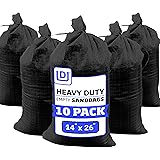The Best Ways to Stay Informed During a Crisis
1. Utilizing Reliable News Sources
2. Engaging with Social Media Wisely
3. Setting Up Alerts and Notifications
4. Connecting with Community Support Systems
Utilizing Reliable News Sources
When a crisis strikes, reliable news sources become your best friends. I’ve learned the hard way to steer clear of sensationalized headlines and instead focus on established journalism that values accuracy. Big names like BBC, NPR, or Reuters often lead the way in providing factual updates.
One key aspect to this is understanding how to differentiate between news sources. A quick glance at their reputation and the standards they uphold can save you from misinformation. I usually spend a few minutes checking their editorial policies or looking for fact-checks about their recent coverage.
Lastly, I find it beneficial to consume news across different platforms. Watching a news channel, reading articles online, or even listening to podcasts helps provide a well-rounded perspective. In times of uncertainty, the last thing you want is to be stuck in an echo chamber.
Engaging with Social Media Wisely
Social media is like the double-edged sword of information during a crisis. On one hand, you get real-time updates from official accounts, but on the other, it’s a minefield of rumors. My go-to strategy has been to follow verified accounts of organizations like the CDC or local government agencies.
Another tip? Mute or unfollow accounts that seem to spread panic. I tend to curate my feed to include only info that helps rather than hinders my understanding. Building a strong, reliable network on social media makes it easier to sift through the noise.
Also, don’t forget the power of hashtags! They can help you follow specific situations easily. I’ve found that searching for a particular hashtag can lead me to trusted updates quickly, as long as I’m discerning about who’s tagging along.
Setting Up Alerts and Notifications
I can’t emphasize enough how helpful alerts and notifications can be. Personally, I use my phone’s settings to get immediate updates from trusted news apps or government announcements. It’s like having a direct line to what’s happening without being glued to my screen all day.
== > What if ... Get a FREE Subscription to PREPARE
Another handy trick is to tailor your notifications based on your interests and location. If you live in an area prone to natural disasters, setting up local alerts can be a lifesaver. I once received a notification on a storm warning that allowed me to prepare instead of being caught off guard.
Let’s not forget about email newsletters! They often deliver a succinct summary of the important news right to your inbox. I subscribe to a few daily digests that keep me informed without overwhelming my schedule. Plus, it’s a great way to share essential updates with friends and family.
Connecting with Community Support Systems
During a crisis, community can be an invaluable resource. I’ve found that reaching out to local support organizations not only helps me stay informed but also fosters a sense of solidarity. Many communities have groups dedicated to sharing information and resources quickly and effectively.
It’s also beneficial to engage with neighbors, especially in more localized situations. Creating a small group chat or checking in with your direct community can help in sharing updates and knowing who’s in need of support. It’s amazing what a little collaboration can do.
Lastly, never underestimate the power of volunteer networks. Getting involved can lead to mutual support opportunities while keeping you looped into what’s happening around you. Whether it’s food banks, shelters, or community forums, stepping in helps enrich your knowledge and experience during a crisis.
FAQs
What should I do if I encounter misinformation?
If you stumble upon misinformation, it’s best to verify the claims through reliable sources before sharing. You can check fact-checking websites or look for announcements from trusted organizations to clarify the information.
How can I differentiate between reliable news sources and unreliable ones?
Look for sources with a strong reputation for fact-checking and journalistic integrity. News outlets that have transparent editorial policies and a history of accountability tend to be more reliable. It’s also worth checking their citations and references.
Can social media really be a reliable source during a crisis?
Social media can offer real-time updates but requires careful navigation. Follow verified accounts and be diligent about unfollowing or muting sources that spread panic. Hashtags can help you follow specific topics or events.
What role does community play in staying informed during a crisis?
Community connections are crucial in sharing timely information and resources. Engaging with neighbors and local organizations allows for quick updates and support while fostering a strong network during challenging times.
Related Content
- What are the benefits of self-reliance during a crisis?
- Food Storage for Preparedness – Surviving Empty Shelves in the Grocery Store
- EMP: What You Need To Know To Stay Prepared
- Is it necessary to prepare for multiple types of disasters?
- The Ultimate Guide to Emergency Water Storage: 7 Effective Strategies for 2025






